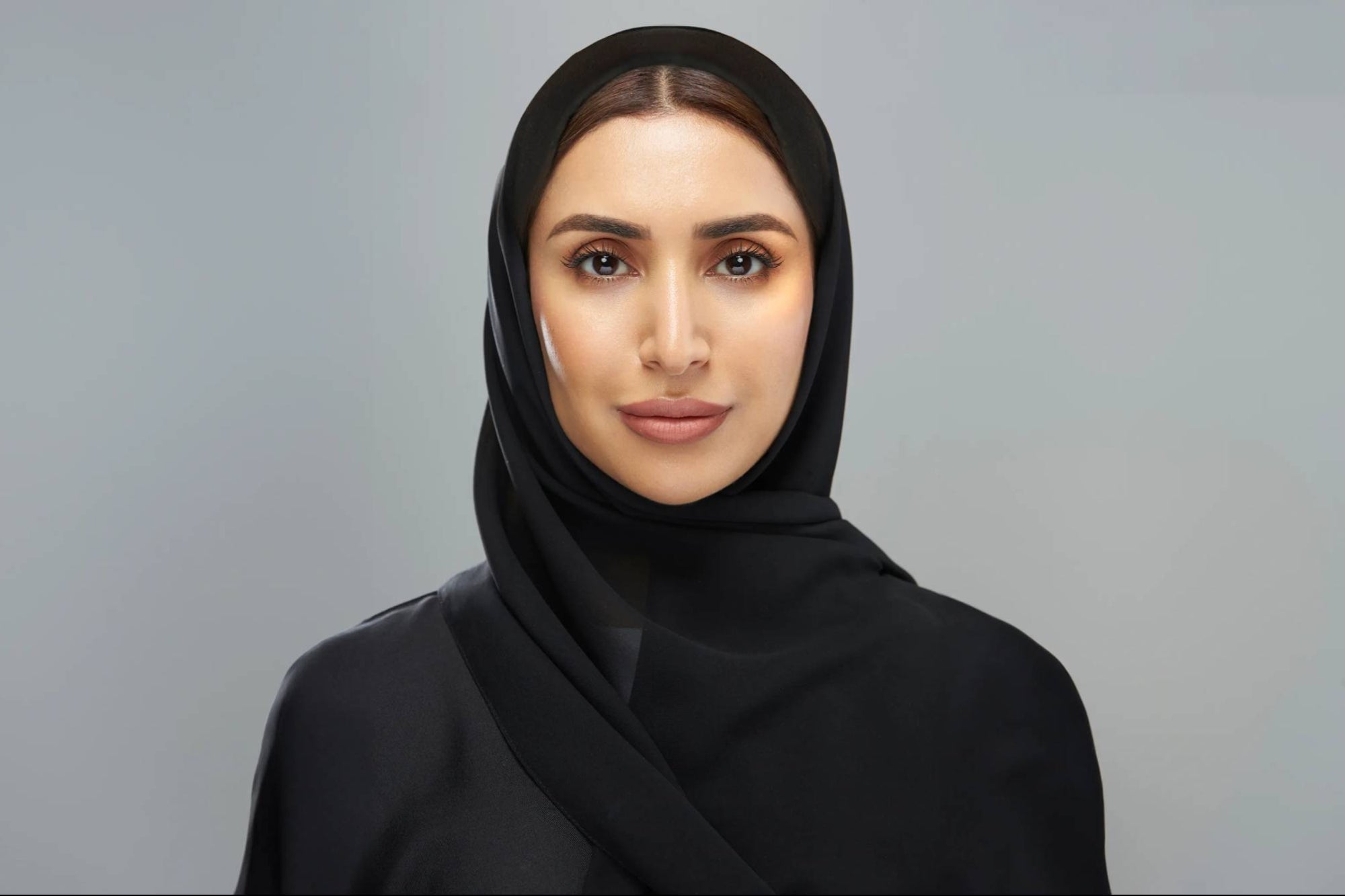DP World Chief Sustainability Officer Maha AlQattan On How The Dubai-Headquartered Group Aims To Be A Responsible Business "There is a lot we need to do to protect the planet for future generations, but I'm excited to lead this journey with an exceptional and dedicated team."
By Ashok Raman
Opinions expressed by Entrepreneur contributors are their own.
You're reading Entrepreneur Middle East, an international franchise of Entrepreneur Media.

Dubai-headquartered DP World's aim is to be a responsible business that leaves a positive legacy throughout its operations.
The company has more than 106,500 employees in 73 countries, and so, it can be quite a monumental task to integrate sustainability. However, the company is prioritizing sustainability as a core business activity, and it insists that it is central to its DNA.
The company has thus updated its guiding principles to ensure both people and sustainability are at the heart of its business. As Maha AlQattan, Chief Sustainability Officer at DP World, put it: "Our sustainability strategy: 'Our World, Our Future,' helps achieve our vision by building sustainability into every aspect of our work, and ensuring the creation of economic, environmental, and social value for future generations."
OUR WORLD, OUR FUTURE
DP World's sustainability strategy framework is underpinned by the United Nations (UN) Sustainable Development Goals (SDGs). Our World focuses on efforts made to operate as a responsible business, with ambitious commitments across seven priority areas, and Our Future looks at the lasting legacy DP World will leave on industry and society as a while. For the latter, DP World has committed to a series of pledges across three focus areas: Women, Education, and Water.
The Group also has a Governance and Sustainability Committee, which assists the Board of Directors in reviewing the Group's corporate governance framework, reviewing and approving the Group's sustainability strategy, policies, programs, targets, and performance. The Group also has an Executive Sustainability Council, whose primary responsibility is to provide strategic oversight of the Group's Our World, Our Future sustainability strategy. This committee ensures alignment with the overall business strategy, and it also identifies and manages environmental, social, and governance (ESG) risks and opportunities.
 Image courtesy Lucidity Insights/DP World.
Image courtesy Lucidity Insights/DP World.
The company activates its sustainability strategy with a "Global-Local Approach," which is to say it empowers its regional teams to activate against its global strategy, and tailor their approaches based on individual market priorities. An active network of Sustainability Managers and over 130 Sustainability Champions across its global business help oversee local initiatives and crucially, feed these insights to the wider global team. "This network is essential in ensuring that we continue to evolve our strategy to meet stakeholder expectations, and that our community engagement is informed by local insight," AlQattan noted.
The Group works closely with leading organizations and partners to deliver the strategy, whilst adopting an ESG framework to effectively measure the impact each year. The Group is extremely proud to hold strategic partnerships with the Maersk Mc-Kinney Møller Center for Zero Carbon Shipping, United Nations Children's Fund (UNICEF), WaterAid, Earthshot Prize, and United for Wildlife, among other key partnerships. The Group is also a participant in United Nations Global Compact, which is a voluntary initiative by the UN to get businesses and firms worldwide to adopt sustainable and socially responsible policies, and to report on their implementation.
For DP World, sustainable financing instruments are a critical tool for allocating capital to projects with positive environmental and social impact. Accordingly, in 2019, DP World established a Sustainable Development Financing Framework, which enables it to issue green, social, or sustainability bonds -or "sukuks"- or loans. In October 2023, the company raised US$1.5 billion in through a "green" sukuk. The proceeds from the sukuk will be earmarked for eligible green projects in line with its framework. Current projects cut across electrification, renewable energy, clean transportation and energy efficiency.
THE FUTURE IS NET ZERO
The Group is also striving to be a carbon-neutral business by 2040, and it has set-out a clear roadmap to achieve net zero carbon emissions by 2050 across its entire operations. The Group is working on finding zero-carbon alternatives, which include electrification and sustainable alternative fuels as some key examples. Additionally, the Group is also working towards a fleet replacement plan for all trucks and ships to be converted to net zero carbon propulsion systems. To add further proof to the pudding, DP World Chile has recently become the first port operator in South America to secure renewable electricity certification.
Meanwhile, the Group has also achieved 100% renewable electricity supply at operations in Netherlands, Belgium, Germany, Serbia, Brazil, Ecuador, Chile, and Drydocks World in the UAE. The Group has successfully avoided more than 132 kilotons of carbon dioxide annually by sourcing 100% of its electricity consumption in all of its UAE operations from green sources through the purchase of International Renewable Energy Certificates (I-RECs) generated from the Mohammed Bin Rashid Solar Park in Dubai. That is equivalent to around 15,000 homes' energy use for one year.
Harnessing innovative technologies is at the heart of this strategy, and the adoption of such technologies is already having a significant impact on its operations. Examples include the usage of hybrid carriers and automated cranes, which now run on 100% green energy at DP World Antwerp, the purchase of a fleet of 20 electric terminal tractors at DP World Callao in Peru, and the gradual elimination of diesel from its operations and energy transition by using hydrotreated vegetable oil at its container terminal in Southampton, and investing in two new methanol-capable container feeder vessels, with an option for additional two vessels, to deploy these across the Group's European network.
 Image courtesy Lucidity Insights/DP World.
Image courtesy Lucidity Insights/DP World.
The oceans play a large role in trade, as maritime trade accounts for 90% of volumes. It is clear that trade cannot survive without oceans. DP World is thus focused on its Water legacy pillar, having been the first company from the region to join the United Nations Global Compact (UNGC) Ocean Stewardship Coalition, and commit to the UNGC's Sustainable Ocean Principles. In India, the DP World team has already benefitted over 15,000 people by installing water systems and bio- toilets across five villages and schools. The Group has additionally entered into a three-year partnership with WaterAid to address the global water security crisis. As part of the partnership, WaterAid has designed and implemented long-lasting and comprehensive water, sanitation, and hygiene (WASH) infrastructure, starting in Mozambique, which will further expand to Nigeria in 2024. Water systems have already been installed across three healthcare facilities, in Niassa province, reaching an estimated 13,500 people.
The Group also participates in The CEO Water Mandate, a special initiative established in 2007 by the UN Secretary General and the UNGC in partnership with the Pacific Institute to advance corporate water stewardship around the world. The Group also participates in The CEO Water Mandate, a special initiative established in 2007 by the UN Secretary General and the UN Global Compact (UNGC) in partnership with the Pacific Institute to advance corporate water stewardship around the world. Meanwhile, to protect "the blue economy" and preserve biodiversity, the Group prioritizes nature-based solutions. It has already planted over 200,000 mangrove trees in Posorja, Ecuador, in partnership with the CALISUR Foundation. It is expected that additional 40,000 mangroves are planted in 2024, contributing to long term carbon sequestration and the enhancement of costal marine ecosystems in the region. Additionally, DP World is supporting two projects by partnering with The Earthshot Prize. Both of these projects, Living Seawalls and Coral Vita, focus on ocean restoration.
Related: What You Need To Know As The World Gets Ready For COP28 In The UAE
The main challenges in implementing its sustainability agenda include the interconnectivity of supply chains, the global lack of consistency and standardization, and finance "We are inherently connected to others in the value chain, so our goals or performance cannot be treated in isolation or prioritized in silo," AlQattan noted. Where DP World might see an opportunity for port electrification, for example, this could incur additional emissions elsewhere in the supply chain through the need to scale up battery manufacturing, with AlQattan further adding, "As business leaders, we need to consider the holistic impact our actions are taking."
There is also a difference in the investment landscape across emerging and developed markets. Increased volatility in emerging markets prove challenging for investors to contribute the same volume of foreign direct investment (FDI), as with developed economies. However, the Group is focused on mobilizing green finance, and issuing a variety of sustainable financing instruments which may include public bonds/ sukuk, private placements, revolving credit facilities and bank loans. The Group has also taken on the Green Shipping Challenge, investing up to $500 million over the next five years to cut emissions from DP World's global operations by nearly 700,000 tons.
 DP World Chief Sustainability Officer Maha AlQattan. Image courtesy DP World.
DP World Chief Sustainability Officer Maha AlQattan. Image courtesy DP World.
With regard to standardization, the Group has taken "a data-driven approach to enable us to identify where we're doing well as an organization, and where there are gaps or room for improvement," AlQattan stated. The company has integrated its own ESG Scorecard, using specific metrics to measure both annual performance and enhance accountability, while ensuring adherence to the global best practices for sustainability reporting. To further ensure what data is being collected and how it needs to be used, the Group enhanced its reporting in accordance to both the UN Women Empowerment Principles and the UN Sustainable Ocean Principles in 2022.
As for AlQattan herself, her role "has been an incredible journey that has transformed my outlook, and during this time, I kept coming back to one belief- the more we learn, the more we do." With the multitude of activities already achieved, and the challenges present, she acknowledges that "there is a lot we need to do to protect the planet for future generations, but I'm excited to lead this journey with an exceptional and dedicated team."
To read more about the power of sustainable trade in the race to net zero, check out the report, Sustainable International Trade for a Resilient Future, by clicking here.
This article was originally published on Lucidity Insights, a partner of Entrepreneur Middle East in developing special reports on the Middle East and Africa's tech and entrepreneurial ecosystems.
Related: The Importance Of Sustainable Trade










